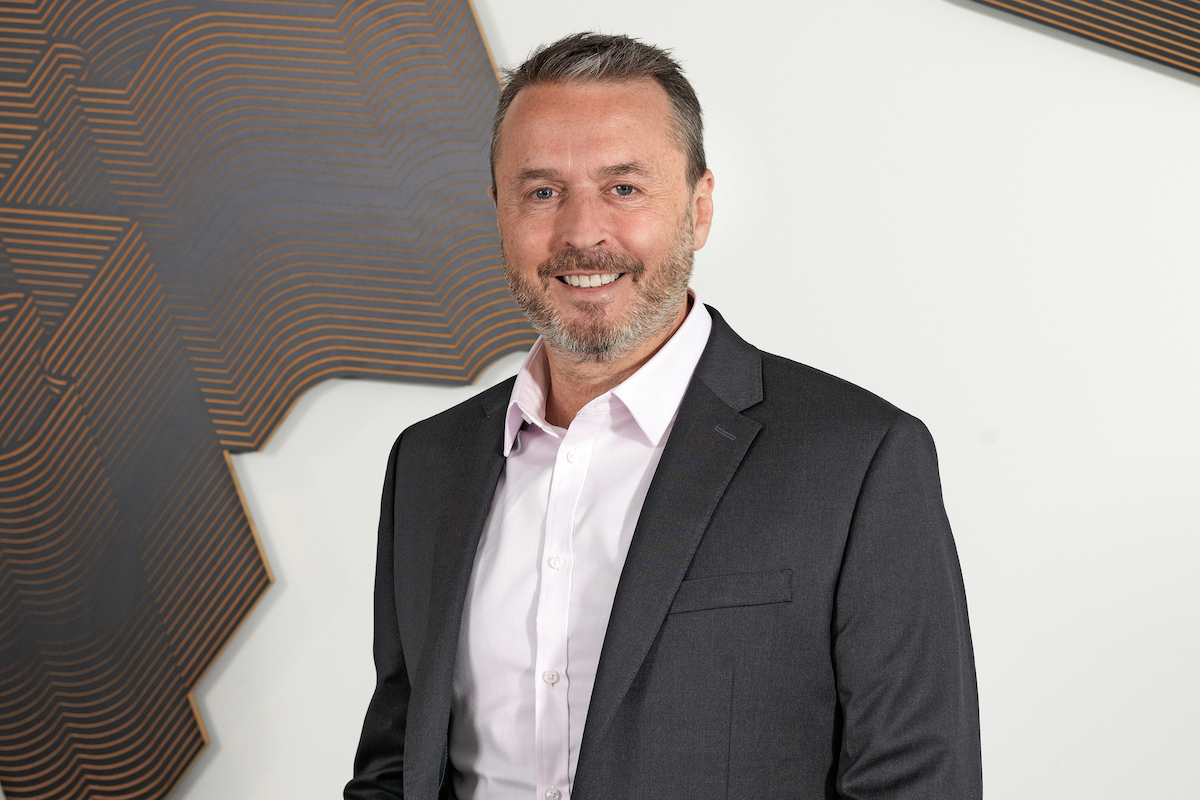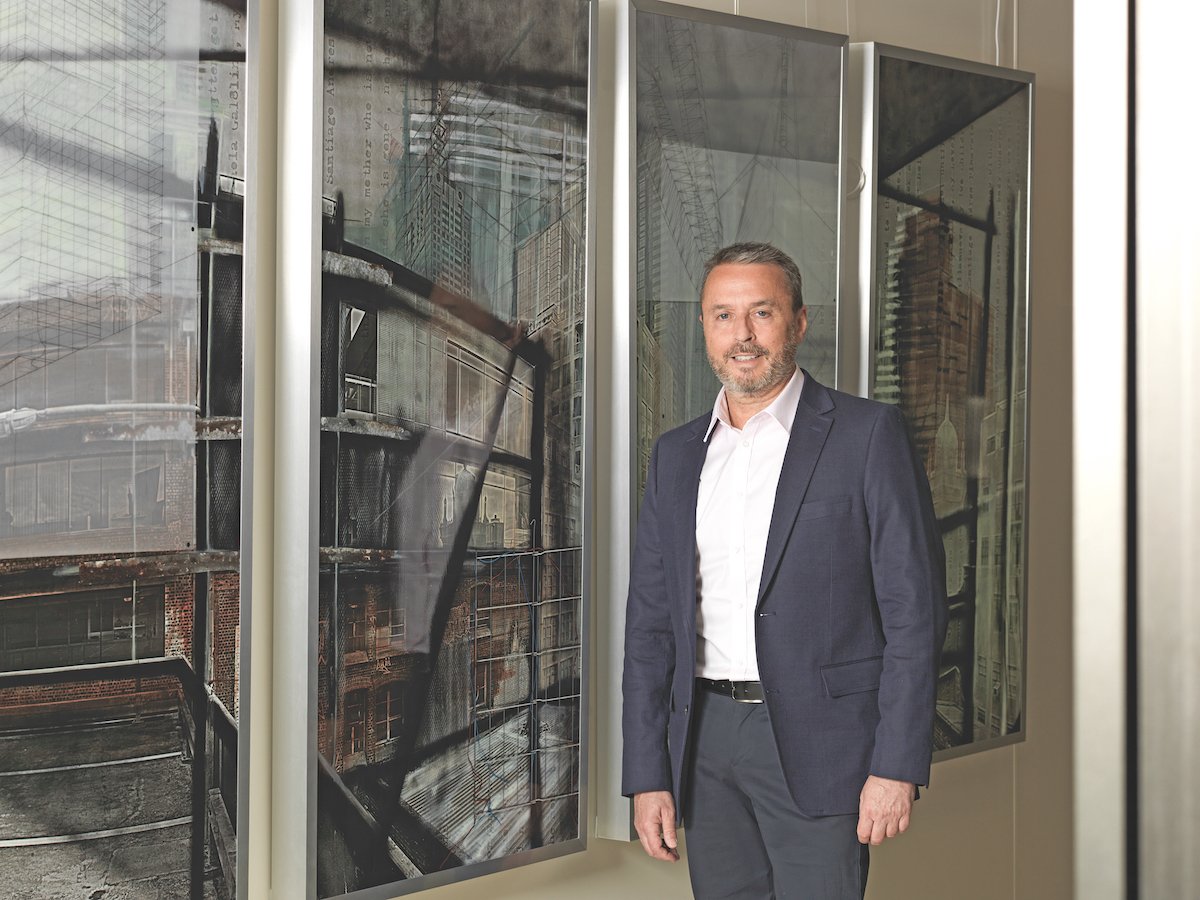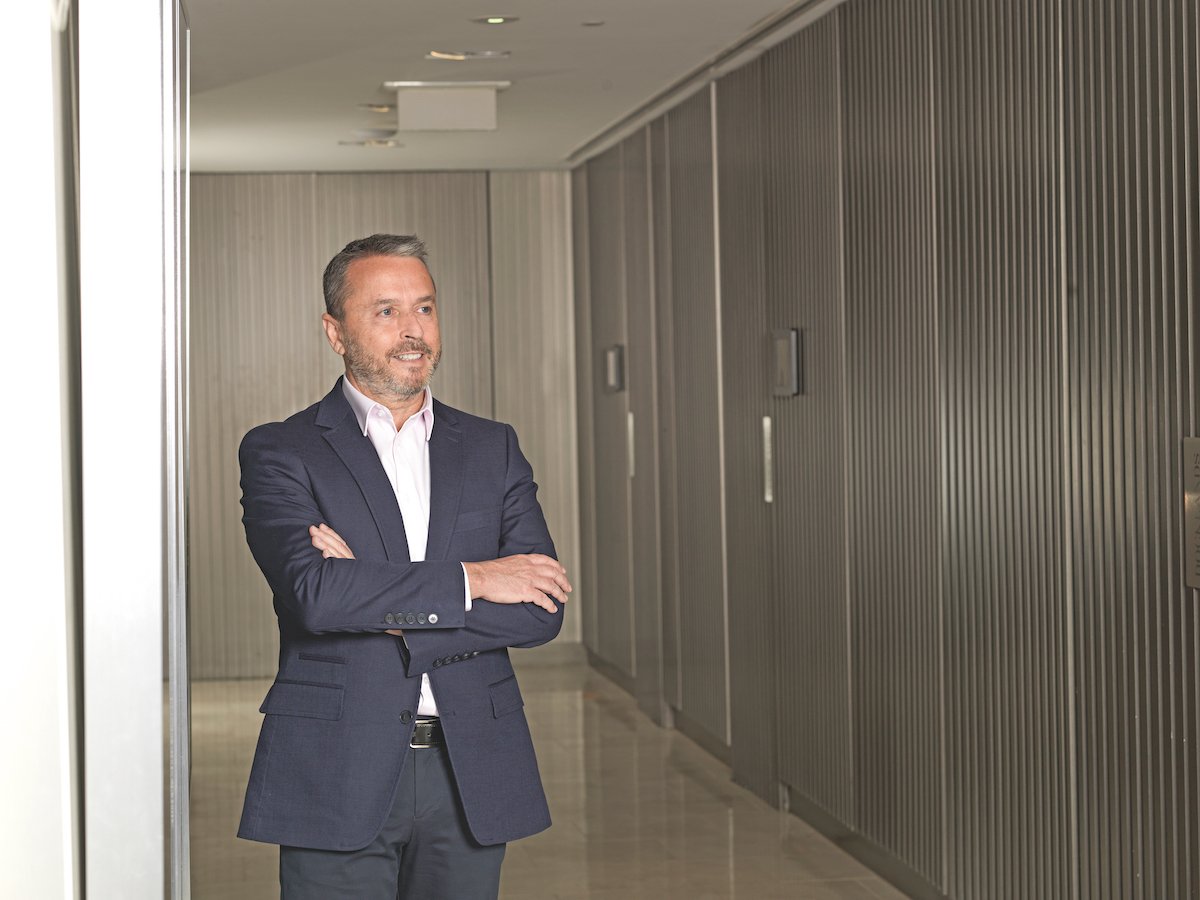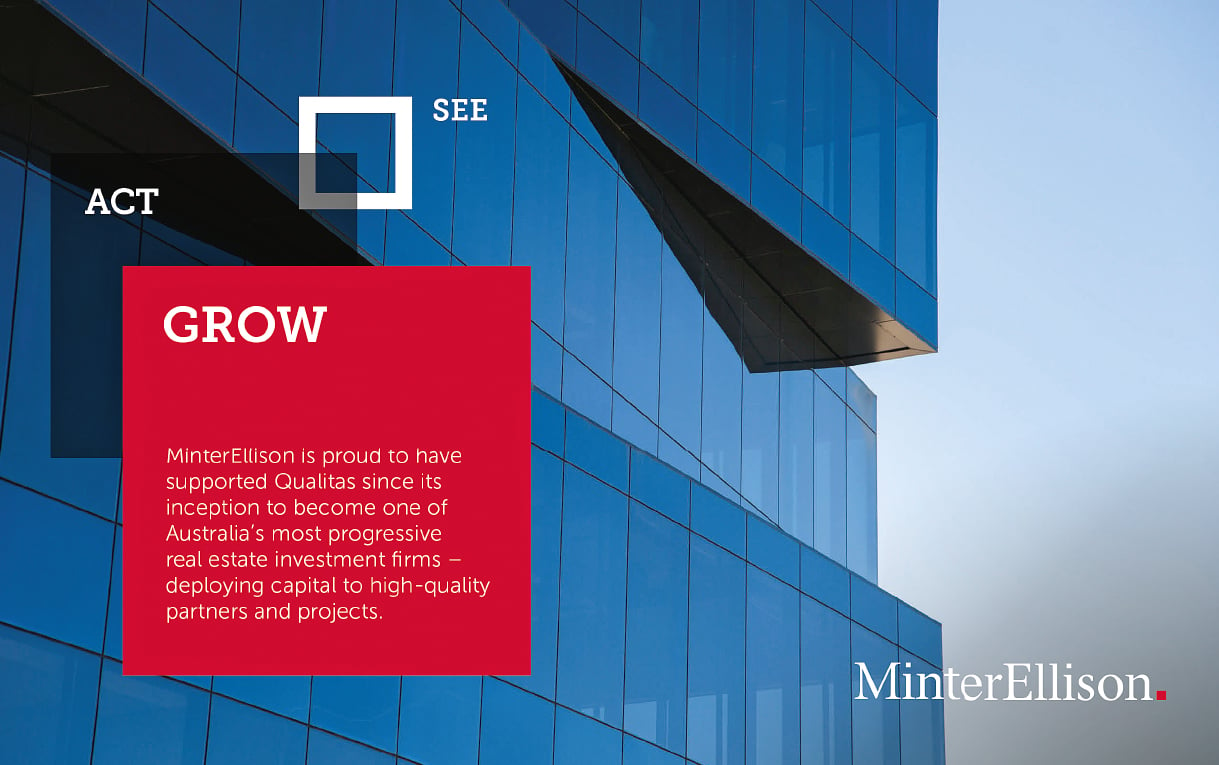The depths of a recession may seem like a strange time to start an investment business, but Qualitas Co-Founder and Group Managing Director Andrew Schwartz understood that for all the challenges involved, there were also immense opportunities. After all, having worked through the deepest of recessions in 1991, he had seen for himself how much wealth could be created by investing during a period of such lows.

“Having seen that firsthand and having this burning desire to do something that involved the creation of a business, I felt that 2008 had the potential to be one of those moments in time where there’s a setback in market values,” he tells The CEO Magazine. “That creates a really fantastic opportunity to do some deep-value investing, and I didn’t want to miss that.
“I was really of the view that this could be the last opportunity, or second-last opportunity, in my working life to really get an investment firm up and running and, so I was really confident. It was the right time to do it.” And so, in 2008, he co-founded real estate investment management firm Qualitas Group with Mark Fischer, now the company’s Global Head of Real Estate.
The Melbournebased business focuses on investing across the capital structure and risk spectrum and is active in the major capital cities of Australia, utilising institutional and private investor capital to fund high-quality, commercial real estate partners.
Runaway success
Andrew’s hunch certainly paid off – the company is now managing A$4.2 billion of total capital. “We’re humbled by the amount of trust that our investors have put in us today,” he stresses. “We take that seriously and will continue to work hard to maintain that level of respect.”
While some have dismissed his success as a “fluke”, he knows only too well that the upward trajectory of Qualitas had been extremely “deliberate and intentional”, backed up by the company’s strong performance during two years of uncertainty that was stirred by the COVID-19 pandemic. For the September quarter of 2021, its ASX-listed real estate debt fund posted strong commercial real estate (CRE) debt origination across all property sectors as it hit its target.
We’re humbled by the amount of trust that our investors have put into us today. We take that seriously and will continue to work hard to maintain that level of respect.
The trust posted a 5.96 per cent per annum net return and a 5.55 per cent per annum distribution return attained (three-month), across a loan portfolio that is predominately senior first mortgage. Over the period, it invested in nine new loans worth A$65 million. Its commercial real estate debt pipeline is now roughly A$550 million and its total trust capital A$600 million.

Meanwhile, a number of exciting projects are afoot. With Perth-based partner Greenpool Capital, Qualitas now owns 100 per cent of Runaway Bay Centre on the Gold Coast. It is also working on Melbourne’s Jam Factory and a site in Parramatta with Gurner, along with a Bellfield, a new community in Melbourne, with Glenvill Developments.
Looking back
For Andrew, the firm’s success is the culmination of a 36-year journey that began back in 1985. “I always undertook finance and investment roles,” he reflects. “The 1980s was very much a debt-fuelled era. It was the decade of being deregulated and when lots of foreign banks came into the country.” As he set out on his career journey, he was employed by various international banks. But then in 1991, when the “very severe property recession” hit, Andrew was working for Australian government-owned investment bank Australian Industry Development Corporation.
We’re not a firm that rests on its past. in other words, we’re 13 years young rather than 13 years old.
“I was involved quite heavily in a lot of group restructurings that were occurring in Australia, which was very common because you didn’t have a lot of alternative lenders back then as we do today,” he recalls. “I met a lot of other financiers from other banks, but also people from wealthy families who were involved in a lot of restructuring work, so I made some really incredible contacts that endured for decades.”
While many of those contacts went on to pursue careers in investment banking, Andrew was instead determined to do his own thing. “I had grown up in a family where my father was a property developer and self-employed and so I just had this burning ambition to create as opposed to simply continuing on a career climbing path,” he explains. “Then in 2008, that vision came alive with the creation of Qualitas.”
Doing it differently
“There are two ways of creating a funds management firm,” Andrew stresses. “A really common way of doing it is for a bunch of people to get together, go and find transactions and then raise capital in the market. Then, as they start to grow the firm, they really look to retrofit a back office and a governance structure behind them.” But that’s not the route that he and Mark wanted to follow.
“We really went into this saying that we wanted to have a very strong process and governance system up-front,” he says. “And so we spent quite a lot of time in our early years really defining what that meant to us and what boards, subcommittees and investment committees were important right from day one.” It was a big investment, but one that was well worth it, according to Andrew.
“Then, in terms of having our transactions funded, together with my partners, we had to capitalise the firm quite substantially,” he says. “So we used our own capital to underwrite the transactions that we were wanting to invest in and then, in the very early days, we took it out to family and friends to co-participate with us in our various investments.”
Then, around six years ago, as the volume of transactions started to speed up significantly, they decided to change gear. “We needed to convert the firm from a deal-by-deal, asset-by-asset business to a funds management business and that really involved the creation of sector-specific focus areas and investment thematics as opposed to simply talking about individual transactions,” Andrew says.
“Off the back of that, together with sound corporate governance and financial oversight, we started attracting relatively large institutional capital.” Now, more than 70 per cent of Qualitas’s capital is pure institutional capital, a huge achievement that Andrew credits to the company’s strong team as well as its track record and investment thematic. One thing that has not changed in all that time is that the company remains firmly focused on real estate.
“We’re not trying to be all things to all people in terms of running around and looking for corporate M&A transactions or corporate receivables,” he insists. “We are a deep-dive real estate house, but within real estate, we’re really able to focus on various areas that we think are ripe for investment at this point in time.”
Covid strikes
Bringing with it similar lows to both the 1991 and 2008 recessions was the COVID-19 pandemic, according to Andrew. “There was a lack of liquidity in the market again,” he explains. This uncertain period saw investors, particularly those from overseas, retreat from Australia. “At times of setback, people like to sit still and you find that there’s an outflow of liquidity from a market or a suspension of liquidity in the market.”

Once again, Andrew found himself faced with a rather incredible opportunity. “For Qualitas, fortuitously, we were very cashed up at the time that COVID set upon us, not because we necessarily saw it coming our way but because the markets had run pretty hard leading up to it and we didn’t necessarily chase it,” he shares. But rather than rush into anything, Andrew wanted to first assess the “lay of the land” and to try to understand the nature of the pandemic and what it meant for the wider economy. It wasn’t until July 2020 that Qualitas started to take action.
“We felt returns had really come back to a level that we thought was very attractive for our investors and so we started investing,” he says. “So that’s how we managed our way through it.” The support of its partners was also crucial during this period, with Andrew drawing particular attention to two key relationships that have consistently helped the business to thrive. Alter Domus is the company’s outsourced fund administrator, providing comfort to its investors.
“Having an outsourced fund administrator allows Qualitas to focus on what we are best at doing, which is running portfolios of investments in alternative real estate such as private credit,” he explains. Meanwhile, legal firm MinterEllison has also proved to be an invaluable support. “There are lots of good lawyers in Australia, but MinterEllison has really taken the time to understand our business, investments and funds,” he says.
Future focus
Now, looking ahead, Andrew is excited by the possibilities, particularly as the market continues to evolve. “We’re not a firm that rests on its past. In other words, we’re 13 years young rather than 13 years old,” he says. “We’ve got a very, very long way to go in terms of this whole non-bank market and the future opportunity that this whole industry is going to create.”
In Australia, the non-bank and alternative investment market remains a small percentage of the total commercial real estate debt market in comparison to other places in the world. But Andrew is confident the market is now maturing to become poised for scalability and long-term growth. “We take very seriously the investment commitments that people make to us and are determined to achieve long-term success without relying on the past.”
Proudly supported by:




